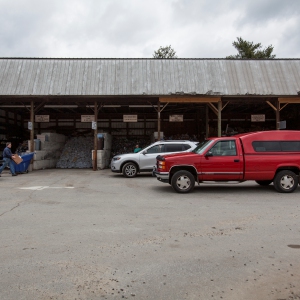
Latest News
 Opinion: What it means to be an American
Opinion: What it means to be an American
 Opinion: Looking forward to resting in motion
Opinion: Looking forward to resting in motion
 Opinion: Technology and the human brain
Opinion: Technology and the human brain
 Concord planning board approves new casino zoning
Concord planning board approves new casino zoning

Cottage community rebuilds beloved dock after it was destroyed in boat crash
The Keewaydin Cottages feel like the set of a movie.Tall pines stand sentry on Lake Winnipesaukee’s rocky shoreline, and the air’s humidity-muffled stillness is cut only by the quiet lapping of waves against the small beach and the deep, hollow...

‘A little bit of kindness can go a long way’: Belmont continues honoring legacy of Jake Deware
Belmont baseball coach Matt LeBlanc looked up at the scoreboard and saw that his Red Raiders had scored 11 runs against Winnisquam. He felt a chill move up his spine.On May 6, the program had partnered with the Jake Deware Kindness Project to carry on...
Most Read
 Youth rally against New Hampshire’s bill allowing medical aid in dying
Youth rally against New Hampshire’s bill allowing medical aid in dying
 In the face of tragedy, Franklin softball seeks togetherness
In the face of tragedy, Franklin softball seeks togetherness
 A May tradition, the Kiwanis Fair comes to Concord this weekend
A May tradition, the Kiwanis Fair comes to Concord this weekend
 Lawyers and lawmakers assert the Department of Education is on the verge of violating the law
Lawyers and lawmakers assert the Department of Education is on the verge of violating the law
 On the trail: Biden back to N.H. next week
On the trail: Biden back to N.H. next week
 Transgender sports ban heads to Sununu
Transgender sports ban heads to Sununu
Editors Picks
 For some older Jewish professors at Dartmouth and UNH, opposition to campus arrests feels personal
For some older Jewish professors at Dartmouth and UNH, opposition to campus arrests feels personal
 Hopkinton tries to nab out-of-town trash bandits
Hopkinton tries to nab out-of-town trash bandits
 New Hampshire Harm Reduction Coalition provides kits for safer drug use
New Hampshire Harm Reduction Coalition provides kits for safer drug use
 Driven by capital projects, city budget proposal would boost spending by $40 million
Driven by capital projects, city budget proposal would boost spending by $40 million
Sports

High schools: Thursday’s results
Girls’ LacrosseHopkinton 15, Plymouth 5Key players: Hopkinton – Sarah Chodosh (5 goals, assist, 2 draw controls, 2 caused turnovers, 4 ground balls), Sydney Westover (4 goals, 12 draw controls, caused turnover, 2 ground balls), Maeve Owens (3 goals,...
 High schools: Wednesday’s baseball, softball, lacrosse and tennis results
High schools: Wednesday’s baseball, softball, lacrosse and tennis results
 High schools: Monday’s baseball, softball, lax, tennis and track results
High schools: Monday’s baseball, softball, lax, tennis and track results
Opinion

Opinion: Show support for transgender girls
John Buttrick writes from his Vermont Folk Rocker in his Concord home, Minds Crossing. He can be reached at johndbuttrick@gmail.comIt is no surprise that some people are uncomfortable when issues of sex and gender are acknowledged to be a part of the...
 Opinion: Brown v. Board of Education and the Claremont Lawsuit
Opinion: Brown v. Board of Education and the Claremont Lawsuit
 Opinion: Our responsibility to care for the most vulnerable among us
Opinion: Our responsibility to care for the most vulnerable among us
 Opinion: New Hampshire’s LGBTQ+ Youth need support, not political attack
Opinion: New Hampshire’s LGBTQ+ Youth need support, not political attack
 Opinion: Seeing the full picture: Optometry can increase access to care
Opinion: Seeing the full picture: Optometry can increase access to care

Your Daily Puzzles

An approachable redesign to a classic. Explore our "hints."

A quick daily flip. Finally, someone cracked the code on digital jigsaw puzzles.

Chess but with chaos: Every day is a unique, wacky board.

Word search but as a strategy game. Clearing the board feels really good.

Align the letters in just the right way to spell a word. And then more words.
Politics

On the trail: Biden back to N.H. next week
President Joe Biden returns to New Hampshire next week for his second visit in two months to the only general election battleground state in New England.The president will hold an official White House event in Merrimack.Afterward, Democratic sources...
 Transgender sports ban heads to Sununu
Transgender sports ban heads to Sununu
 Landfill legislation buried in Senate citing concerns from DES
Landfill legislation buried in Senate citing concerns from DES
Arts & Life

Vintage Views: Our old neighborhood schools
Our little town of Rumford was growing. People were arriving, and the frontier was becoming a town. Governor Benning Wentworth determined that the name would be changed to Concord to mixed emotions within the community, and the Revolution arrived,...
 A May tradition, the Kiwanis Fair comes to Concord this weekend
A May tradition, the Kiwanis Fair comes to Concord this weekend
 Author Erik Larson to host literary discussion at Chubb Theatre
Author Erik Larson to host literary discussion at Chubb Theatre
 Vintage Views: The Concord Tree Planting Day of 1924
Vintage Views: The Concord Tree Planting Day of 1924
 From the archives: A Dark Day for New England
From the archives: A Dark Day for New England
Obituaries
 Mary Bradbury
Mary Bradbury
Contoocook, NH - Mary Bradbury died peacefully on March 18, 2024 at the age of 95. Mary was born on July 16, 1928 in Greenwich Connecticut, daughter of Helen Beales (Cornelius) and James A.G. Beales. A long-time resident of Contoocook, ... remainder of obit for Mary Bradbury
 Pamela R. Szacik
Pamela R. Szacik
Tilton, NH - Pamela Szacik, 68, of Tilton, NH has passed away on May 6, 2024. She was born in Concord, NH to John E. Ward and Frances L. Ward. After graduating with a Bachelor's degree, she went on to have a lengthy career with the ... remainder of obit for Pamela R. Szacik
 Donald M. Bennert
Donald M. Bennert
Bow, NH - Don passed away peacefully in his home on November 17, 2023, after complications of Leukemia. He was born on September 6, 1947 in Manchester, NH, the son of Harry W. Bennert, MD and Elizabeth McIntire Bennert. He spent his ea... remainder of obit for Donald M. Bennert
 Richard and Connie Strome
Richard and Connie Strome
Concord, NH - Richard Strome, 92, of Contoocook, New Hampshire died on July 7, 2023 and his loving wife Connie Strome, 90, also of Contoocook, died on May 6, 2024, both at The Birches in Concord, and both after long battles with Alzheim... remainder of obit for Richard and Connie Strome

 Opinion: While sometimes boring, parenthood is no snoozefest
Opinion: While sometimes boring, parenthood is no snoozefest
 Concord softball’s senior class reflects on a dominant four-year run
Concord softball’s senior class reflects on a dominant four-year run
 Softball: An eight-inning no-hitter for Maddy Wachter and a walk-off RBI from Sarah Taylor highlight Tide’s Senior Night
Softball: An eight-inning no-hitter for Maddy Wachter and a walk-off RBI from Sarah Taylor highlight Tide’s Senior Night
 2023 hit farmers hard. Now, many say NH's Ag department is making things worse in 2024
2023 hit farmers hard. Now, many say NH's Ag department is making things worse in 2024

 Gallery: Concord girls’ lacrosse celebrates Senior Night with win over Nashua North
Gallery: Concord girls’ lacrosse celebrates Senior Night with win over Nashua North Baseball: Undermanned, Belmont battles against one of the state’s top pitchers
Baseball: Undermanned, Belmont battles against one of the state’s top pitchers State senate approves constitutional amendment banning involuntary servitude – except for prisoners
State senate approves constitutional amendment banning involuntary servitude – except for prisoners
